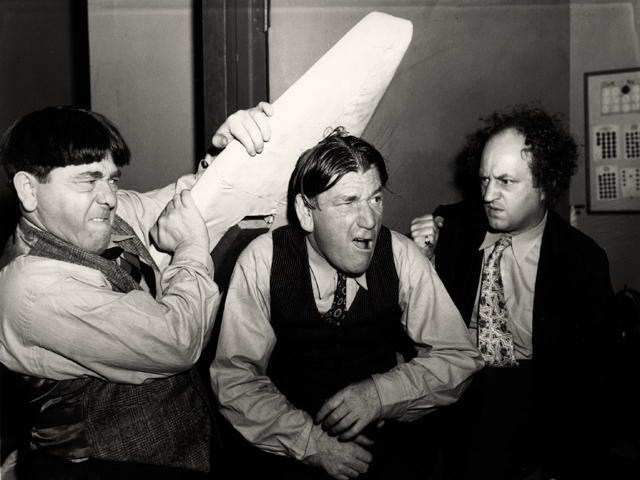The Tenor of Our Times

A “Wet Floor” sign shaped like a banana peel at a shopping mall in Hong Kong in October 2017. Photo by Zhungwinsumtz.
— Ed.




The workers were “settlers in fact but sojourners in attitude.” . . . Not surprisingly, such transience is not confined to the workplace. Young people detached from the constraints as well as the supports of families back home exhibit what one sociologist refers to as “instrumental sociability,” characterized by transitory friendships, casual sexual encounters, and excessive drinking to a degree uncommon back home.
― Excerpted from “Splitting the Difference on Illegal Immigration” by Peter Skerry.
The phrase “instrumental sociability”, when referring to Hispanics, can conjure up a tinge of Tortilla Flat stereotyping, but the more accurate similarity in reference is to another subgroup in our culture, the military. The military also is composed of mostly young men who are away from home and family in what they view as a temporary situation, and they maintain an insularity from the community at large where they are based out of what amounts to a mutual, tacit agreement with the locals. The analogy doesn’t go far before breaking down, such as in discussions of the presence or lack of strong leadership and policing within the subgroup, but still it is ironic that many of the people in the larger culture who adulate the military with nearly onanistic devotion are the same ones who most loudly berate brown-skinned “illegals”.
Willie Nelson and Merle Haggard together sang the most famous version of “Pancho and Lefty”, a song written by Townes Van Zandt. Here, at a tribute to Willie Nelson, Rosanne Cash sings a stirring version.
Before people with middle class and higher incomes, with college or higher educations, and with supposedly refined ethics, start congratulating themselves over how they are above looking down on people and scapegoating one group or another, they might reflect on the rhetoric following the 2016 presidential election when people just like them, and perhaps they themselves, were quick to berate stupid, bigoted rednecks for the disastrous outcome. The caricature that emerged of the typical voter for the Republican winner was of an Anglo male, middle-aged and older, working class and possibly unemployed, and an uneducated bigot as well. While that demographic did make up a significant part of the winner’s constituency, it was not the majority. The picture that has emerged of the majority is of people with middle class and higher incomes, with college or higher educations, possibly with refined ethics, and a great many of them were female. It is simpler and more satisfying, however, to berate the stupid, bigoted rednecks living in the trailer park on the other side of the railroad tracks than it is to grapple with how it is that your neighbor on your suburban cul-de-sac, the nice one you’ve known for thirty years and who looks after your place while you’re away on vacation, how that kindly neighbor could have voted that way and done that to you.
This is meant as no defense for being a redneck, because unlike other personal characteristics it is not intrinsic and immutable, but rather the culmination of a number of repugnant beliefs, attitudes, and behaviors. People confuse rednecks with good ol’ boys. They are not the same. The protagonists in Deliverance were good ol’ boys; the moronic backwoodsmen they tangled with were rednecks. All this appears to stray far from the discussion of scapegoating illegal immigrants, but not really, because the outcome is ugly whatever the source, high or low, and whether the people at the receiving end are “bad hombres” or “deplorables”.
― Ed. 
There’s a bright golden haze on the meadow.
There’s a bright golden haze on the meadow.
The corn is as high as an elephant’s eye,
And it looks like it’s climbing right up to the sky.
Oh, what a beautiful morning!
Oh, what a beautiful day!
I’ve got a beautiful feeling
Every thing’s going my way!
― Excerpt from “Oh, What a Beautiful Morning” from the musical Oklahoma!; lyrics by Oscar Hammerstein II.
The hemp plant, Cannabis sativa, has had a tortured history over the past hundred years on account of its close relative, also Cannabis sativa, but more commonly known as marijuana. The variety grown as hemp and renowned throughout history over several continents for its practical uses has a vanishingly small tetrahydrocannabinol (THC) content of less than 1%, while the variety grown for its psychoactive properties has a THC content over 20%. Smoking hemp would induce a headache rather than relieve one. Why then has hemp been demonized along with its fun-loving and meditative relative?
Like the shreds of fiber running through a stalk of hemp itself, the story has many strands, and they are all entwined within the Cannabis sativa plant as a whole. In the early twentieth century, Mexicans fleeing the chaos of revolution in their country came to the United States in large numbers and brought their recreational and medicinal use of marijuana (their term) with them. Americans had long grown hemp, but they had little interest in its higher THC relative. Americans evidently preferred liquid spirits. The influx of Mexican immigrants with their loco weed coincided with the push toward prohibition of alcohol which culminated in the passage of the 18th Amendment to the Constitution in 1919.

